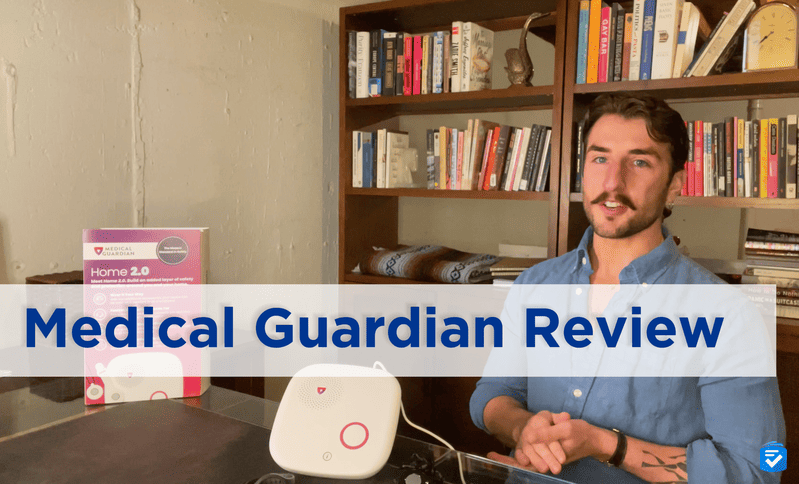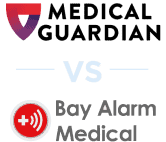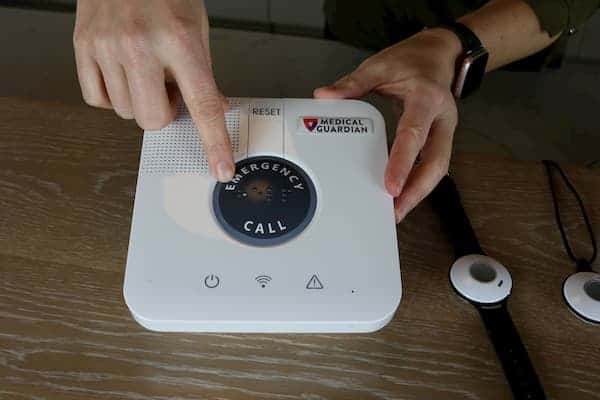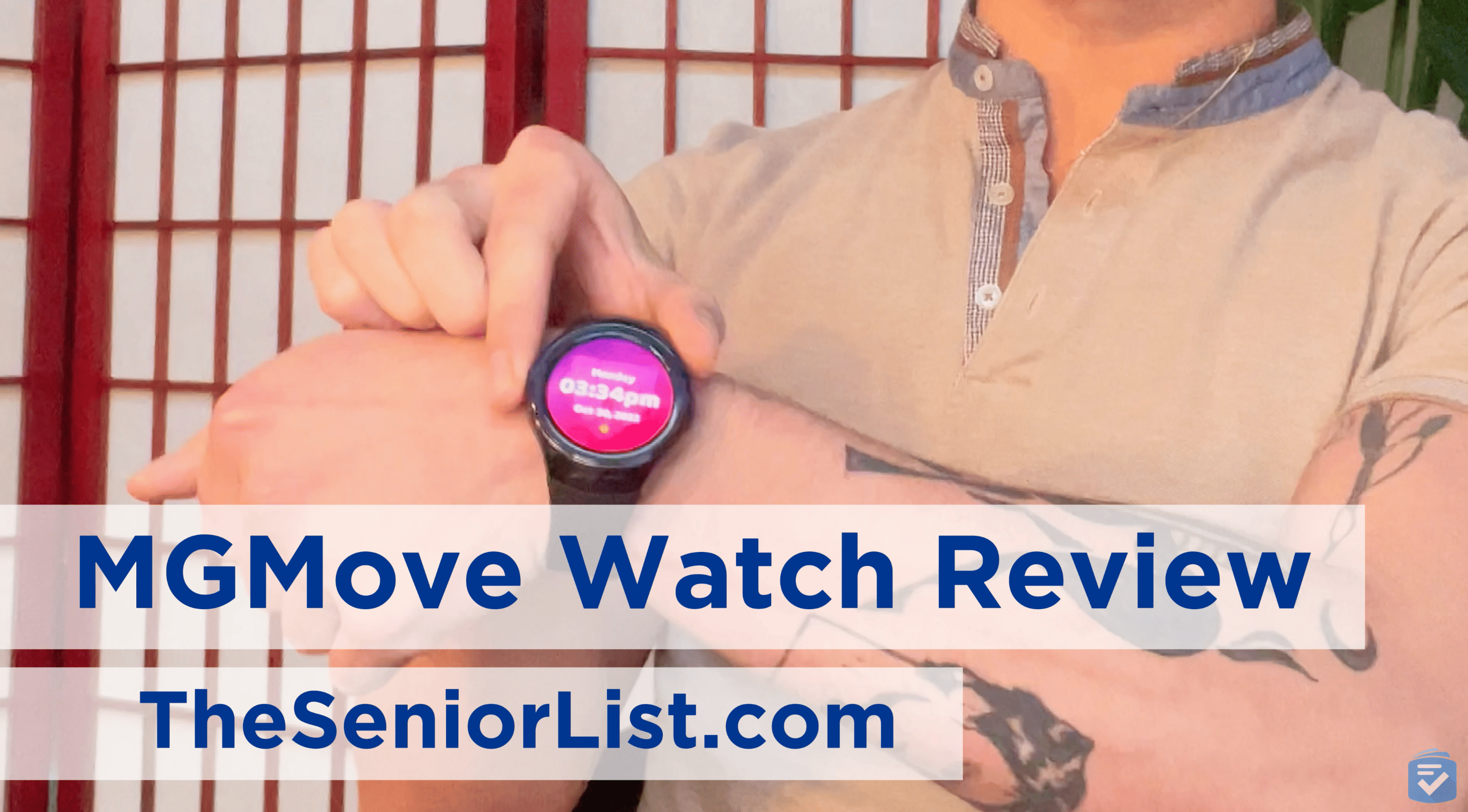Medical Guardian vs. LifeFone: A Hands-On Comparison
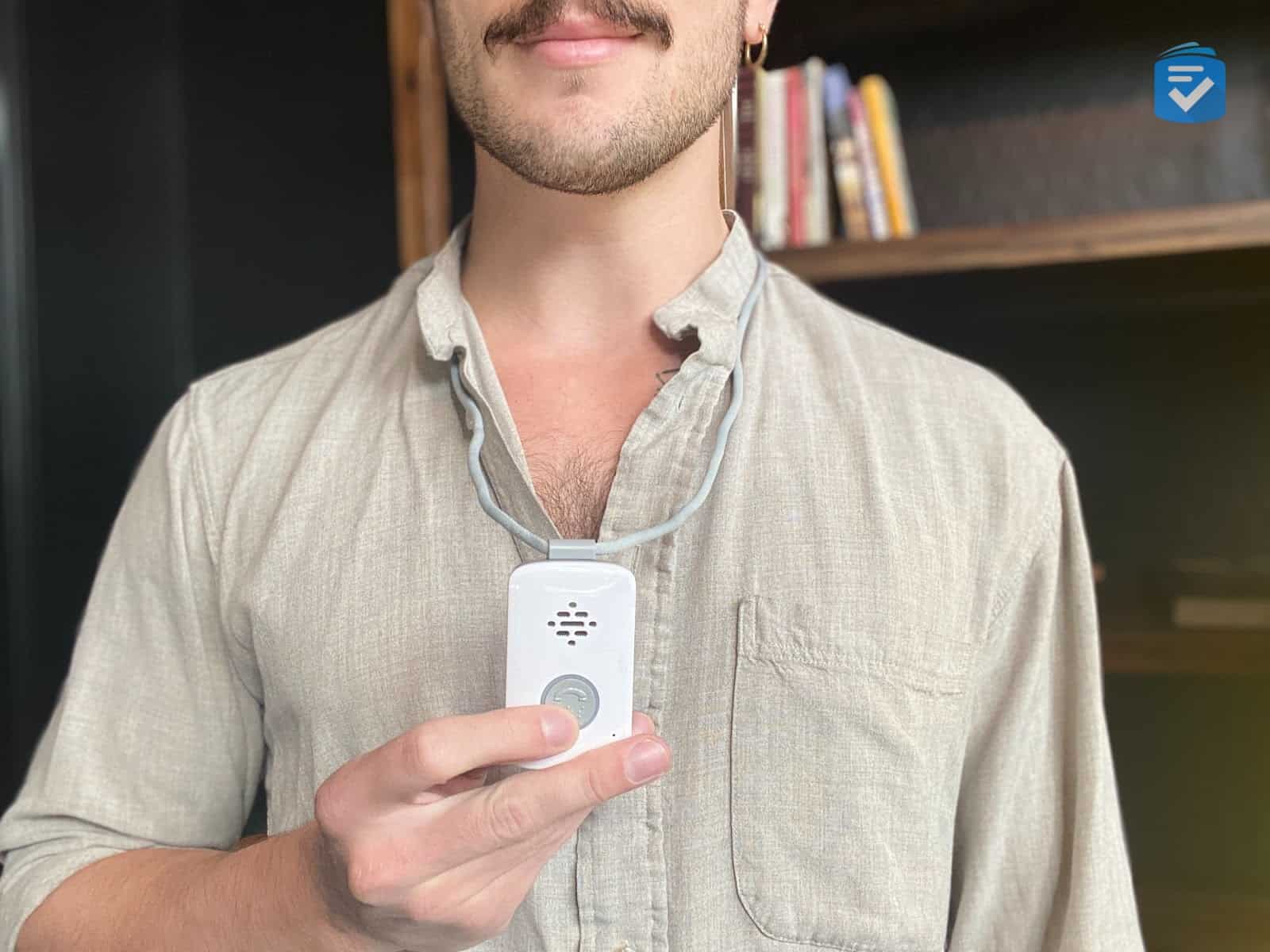
Falls are the second-leading cause of death from unintentional injuries each year, and unfortunately, adults 60 and older fall the most, according to the World Health Organization. In the U.S. specifically, falls cause nearly one-third of nonfatal injuries, according to the National Safety Council. Consequently, many turn to medical alert systems to help them stay safe at home. But with so many companies offering seemingly similar devices, how do you know which is best for you?
In this article, we compare Medical Guardian and LifeFone — both systems we’ve tested ourselves. We’ll cover response times, features, pricing, and contracts, so read on to learn which medical alert system is best for your needs and budget.
FYI: LifeFone and Medical Guardian performed well in our tests, but both companies are on the pricier side. Check out our list of the top-rated medical alerts.
Why Trust TheSeniorList.com?
Our team of caregivers, experts, and health-care professionals conducted over 5,000 hours of in-depth research and testing to recommend the most reliable brands and devices. In this process, our team:
- Tested 50 medical alert devices from 15 different brands.
- Surveyed 1,250 seniors and caregivers on medical alert system usage.
- Consulted with nurses, EMTs, and caregivers who are experts at caring for older adults.
- Published dozens of videos that demonstrate our medical alert system testing process.
- Evaluated verified customer reviews of medical alert companies from the Better Business Bureau.
LifeFone vs. Medical Guardian

|

|
|
|---|---|---|
| Editor's Ratings | ||
| Starting Price (Home System) |
|
|
| Starting Price (Mobile System) | $37.95 per month | $36.95 per month with an annual contract; $149.95 for equipment |
| Minimum Contract Requirement | 1 month | 1 month |
| Average Response Times | 25 seconds | 8 seconds |
| Fall Detection | $5 per month | $10 per month |
| Caregiver App | $8 per month | Included with MGMini, $2.99 per month with all other systems |
| Smartwatch Option | Yes | Yes |
| Contact | ||
| Phone Number |
Call for best price:
844-996-2846 |
Call for best price:
877-947-4512 |
| Website |
Did You Know: In a 2024 AARP survey, 75 percent of U.S. adults 50 and older indicated they preferred to stay in their current home for as long as they could.
LifeFone Systems Overview
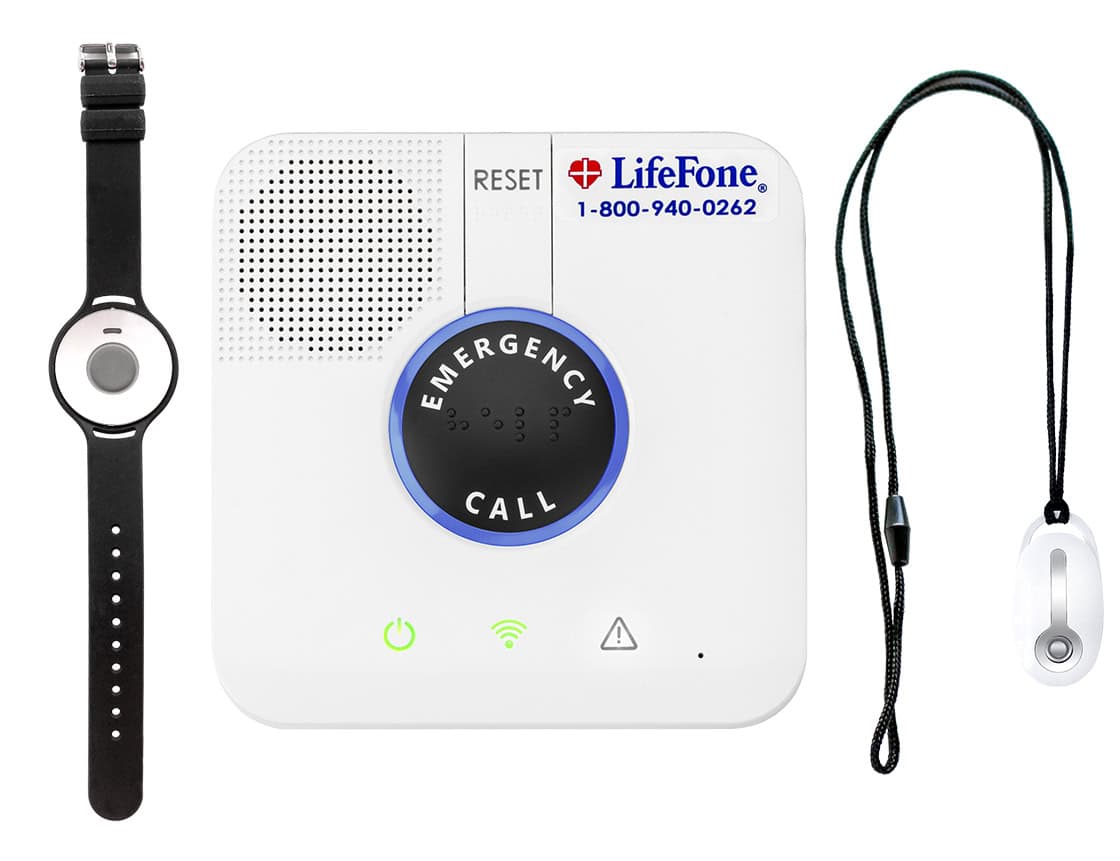
Currently (as of April 2025), LifeFone offers two in-home systems, cellular and landline, plus four at-home and portable systems, including a medical alert smartwatch.
In our tests with LifeFone systems, monitoring agents answered our calls in an average of 25 seconds, which is roughly average for medical alert systems. The company’s response agents were helpful, and, in the mobile systems’ case, could accurately report our coordinates. To learn more about our experience with this company, check out our full LifeFone review.
LifeFone Devices Compared
| System | Monthly Cost | For Use | Additional Features |
|---|---|---|---|
| At-Home Landline |
|
At home |
|
| At-Home & On-the-Go, VIPx | $39.95 | At home and on the go |
|
| At-Home & On-the-Go, VIP Active | $37.95 | At home and on the go |
|
| At-Home & On-the-Go, VIP flex | $39.95 | At home and on the go |
|
| At-Home & On-the-Go, Safe Watch Active | $43.95 | At home and on the go |
|
Medical Guardian Systems Overview
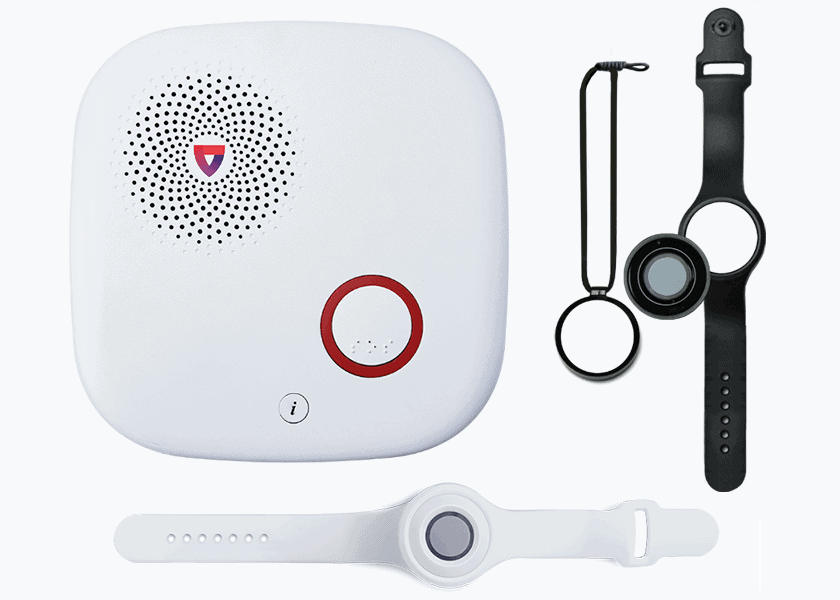
Medical Guardian currently offers five systems: The MGClassic and MGHome Cellular are the landline systems, while the MGMini, MGMini Lite, and MGMove are the mobile systems. Across all systems, we found the Medical Guardian response agents answered our test calls quickly.
To learn more about our hands-on experience testing these devices, read our full Medical Guardian review.
Medical Guardian Devices Compared
| System | Monthly Starting Cost (with annual contract) | For Use | Additional Features |
|---|---|---|---|
| MGClassic | $27.95 | At home |
|
| MGHome Cellular | $34.95 | At home |
|
| MGMini | $39.95 | At home and on the go |
|
| MGMini Lite | $42.95 | At home and on the go |
|
| MGMove | $42.95 | At home and on the go |
|

Costs and Contracts
Medical Guardian and LifeFone have a similar approach to contracts. Both companies allow you to subscribe on a month-to-month basis. While long-term contracts aren’t required, both companies allow you to pay in advance for three months or an entire year for a discount on the monthly price. That said, we generally advise people to pay the month-to-month price to avoid being locked into a device that their loved one might not use.
In terms of actual costs, LifeFone prices are slightly lower for their at-home systems, and slightly higher on their portable systems, although the prices are very similar. LifeFone fall detection is more affordable than Medical Guardian’s, however, as it costs $5 per month compared to a $10 monthly charge for fall detection with Medical Guardian. But Medical Guardian is cheaper when it comes to caregiver tracking: only $2.99 a month versus $8 a month with Life Fone. Your total costs will depend on which system and features you choose, as these companies are very similar in terms of pricing.
But one major difference is equipment costs. While LifeFone doesn’t charge an up-front cost for the equipment, Medical Guardian does — $149.95 to $199.95 — making Medical Guardian the more expensive of the two overall.
FYI: LifeFone systems are more affordable, but they’re far from the cheapest on the market. To find more budget-friendly options, read our guide to the most affordable medical alert systems.
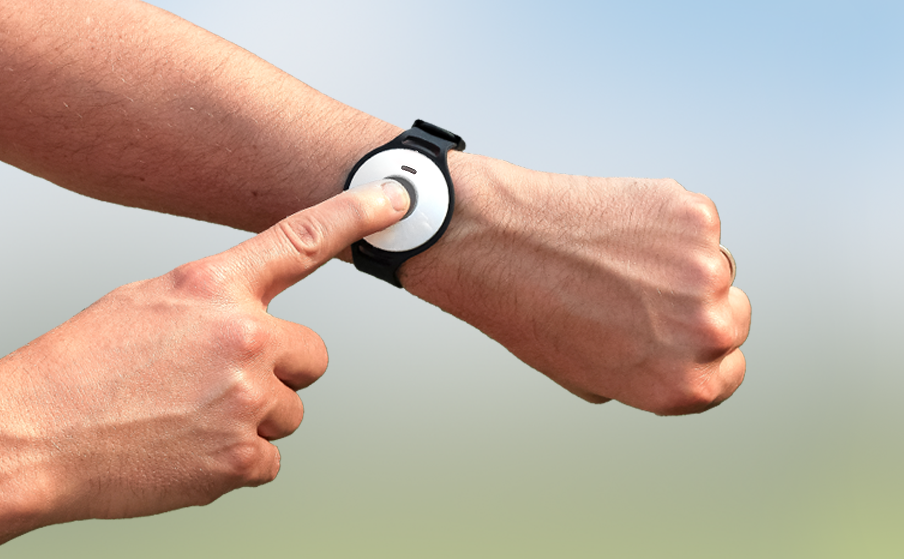
Performance
While Medical Guardian systems cost a bit more in some cases, such as the home systems, they performed slightly better in our tests. In our series of 10 test calls with each Medical Guardian system, we received responses in an average of eight seconds. This is the fastest response time of any medical alert company.
LifeFone systems, on the other hand, took an average of 25 seconds to connect us to help. That said, we should note that 25 seconds is still faster than our test calls with Life Alert, which you can read about in our Life Alert review. So, while LifeFone is not quite as fast as Medical Guardian, the company’s systems are still reliable.
Both companies’ fall detection worked well. However, there was some variation among devices. The MGMini Lite, for example, detected eight out of 10 test falls, while the MGMini detected only one. LifeFone systems performed similarly in terms of fall detection, capturing between six and eight out of 10 test falls.
Our Top Choice
LifeFone offers fall detection at half the cost of Medical Guardian, plus free equipment, but we recommend Medical Guardian systems over those from LifeFone. While LifeFone does have comparable features to Medical Guardian, the company’s response times were more than twice as long. Medical Guardian’s fast response times are one of the reasons they top our list of the top-rated medical alert systems.
Methodology
Most medical alert companies sell a variety of systems, including smartwatches and in-home and mobile systems. Each device has its own unique features, but they all offer the same basic function: connecting users to help in an emergency. With this in mind, we evaluate every medical alert system on the following criteria:
- Response times: The faster a medical alert system connects you to help, the better. For each system, we performed 10 test calls, counted how long it took to receive a response, and calculated an average.
- Ease of use: In an emergency, it's important that a user can successfully activate their system. So, we carefully evaluated each device's design, with simplicity top of mind.
- Customer care: A human touch is key to caregiving. With this in mind, medical alert companies must offer impeccable customer service, from the agents at monitoring centers to support personnel.
- Pricing and contracts: We analyze device costs, subscription costs, contract requirements, and other fees associated with a medical alert system purchase.
- Extra features: We test out voice commands, caregiver apps, fall detection, activity monitoring, and any other features included with a medical alert system.
Frequently Asked Questions
-
Which is better: LifeFone or Medical Guardian?
Because of their faster response times, we prefer Medical Guardian over LifeFone. That being said, the systems are similar in terms of features, and both companies consistently rank among our favorite medical alert companies, even though Medical Guardian is more expensive and charges for equipment.
-
Does LifeFone have the same equipment as Medical Guardian?
Occasionally, LifeFone and Medical Guardian offer identical systems under different names. For example, the At-Home & On-the-Go VIP Flex and the MGMini Lite are the same device, just marketed differently. However, not all of Lifefone’s equipment is the same as Medical Guardian’s.
-
Does LifeFone or Medical Guardian have better fall detection?
Medical Guardian’s fall detection is more accurate than LifeFone’s, but it costs twice as much, $10 a month compared to $5.

